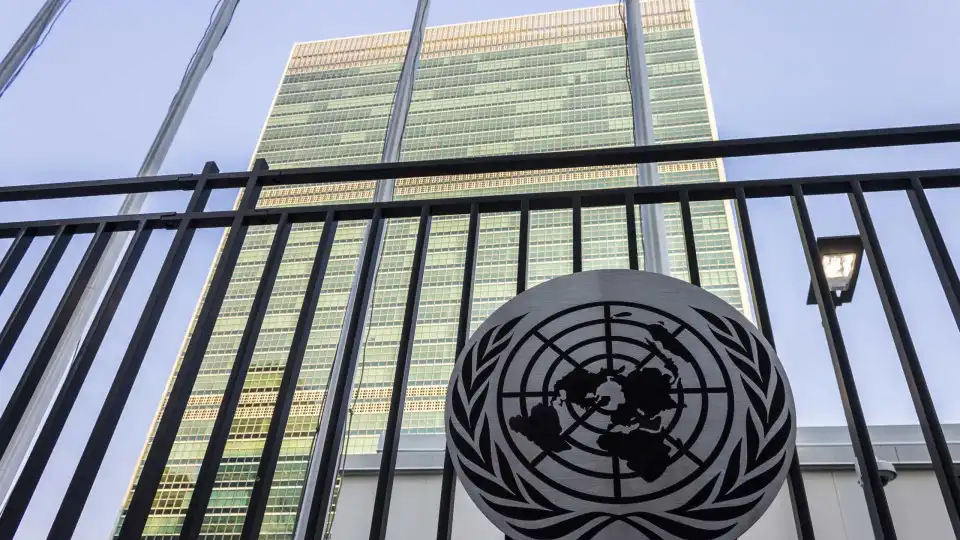Spain. PP/Vox government laws threaten the "memory" of the crimes of the dictatorship
The UN considered today that laws from three regional governments in Spain formed by coalitions of the right and the far right threaten "the historical memory of serious human rights violations" during the dictatorship and the civil war.

© iStock

Mundo ONU
The laws in question have already been passed or proposed in the regional parliaments of Aragon, Castile and Leon, and the Valencian Community, where there are autonomous governments of the Popular Party (PP, right) in coalition with Vox (far-right).
These laws could jeopardize the obligation of the Spanish State to "guarantee the preservation of the historical memory of serious human rights violations," according to a joint opinion by the United Nations (UN) Special Rapporteur on the promotion of truth, justice, reparation and guarantees of non-recurrence (Fabian Salvioli), the Working Group on Enforced or Involuntary Disappearances (chaired by Aua Baldé), and the Special Rapporteur on extrajudicial, summary or arbitrary executions (Morris Tidball-Binz).
The opinion was issued at the request of the Spanish Government, a left-wing coalition led by the Socialist Party (PSOE).
In the text released today, the UN rapporteurs emphasize that the laws of the three autonomous regions determine the end of "multiple entities, projects, websites, and historical memory activities on serious human rights violations."
These are laws, they continue, that could imply "limits to access to the truth about the fate or whereabouts of victims," "hinder or suppress the financing of historical memory projects," and "could make invisible the serious human rights violations committed during the Franco dictatorship and/or omit naming or condemning said regime."
The authors of the opinion recall the international commitments in terms of human rights protection and historical memory of the Spanish State "as a whole," to whom they ask for measures to guarantee "the preservation of the collective memory" of human rights violations such as those that were committed during the dictatorship of Francisco Franco (1939-1978) and the civil war of 1936-39.
The adoption of "memorialization processes" is "an essential element of reparation owed to the victims" and "of guarantees of non-recurrence of past violence," in addition to having the objective of "avoiding the emergence of revisionist and negationist theses," the UN rapporteurs emphasize.
In the case of the Valencian law, for example, the rapporteurs say that it equates the victims of the dictatorship and the civil war with those of the Second Spanish Republic (1931-1939) and those of ETA and Islamic terrorism, which distorts the objective of "attending to the needs and rights of the hundreds of thousands of victims of Francoism and the civil war," emphasizing the "extrajudicial executions and forced disappearances during the Franco dictatorship" that should not be included in a "heterogeneous set" of crimes committed in Spain in the 20th century.
The Spanish Government, which admits appeals to the Constitutional Court, has already said that it will ask the three regions to change the laws, which it considers attempts to circumvent the Democratic Memory Law of the Spanish state, approved in 2022, and of "whitewashing Francoism."
The president of the PP, Alberto Núñez Feijóo, stated that "laws that have not yet been approved should not be considered approved" and stressed that for the party "Franco's 40 years were a dictatorship and ETA was a terrorist group," emphasizing "the commitment" of the populars to historical memory.
The presidents of the three regional governments regretted an opinion issued without the executives having been heard and considered that the UN rapporteurs reveal ignorance of the laws in question and of local realities.
In Spain, there are more than 110,000 unidentified victims of the civil war and the dictatorship, one of the highest numbers in the world.
More than 500,000 people died in the civil war between the rebel nationalist forces led by Franco and the defenders of the Spanish Republic.
The Democratic Memory Law approved in 2022, which replaced another from 2007, reinforced Spain's commitment to searching for the disappeared during the civil war and Francoism and opened the door to investigating possible human rights violations during the period that followed the approval of the current Constitution, between 1978 and 1983.
The law provides for the creation of a national DNA bank to help locate missing and presumed dead persons, often in unmarked graves or mass graves, which are still being exhumed.
The Spanish authorities were given the responsibility of finding and exhuming the victims, a task that had been carried out by civic movements and families.
Read Also: UN highlights Somali media coverage of climate challenges (Portuguese version)

Descarregue a nossa App gratuita.
Oitavo ano consecutivo Escolha do Consumidor para Imprensa Online e eleito o produto do ano 2024.
* Estudo da e Netsonda, nov. e dez. 2023 produtodoano- pt.com



